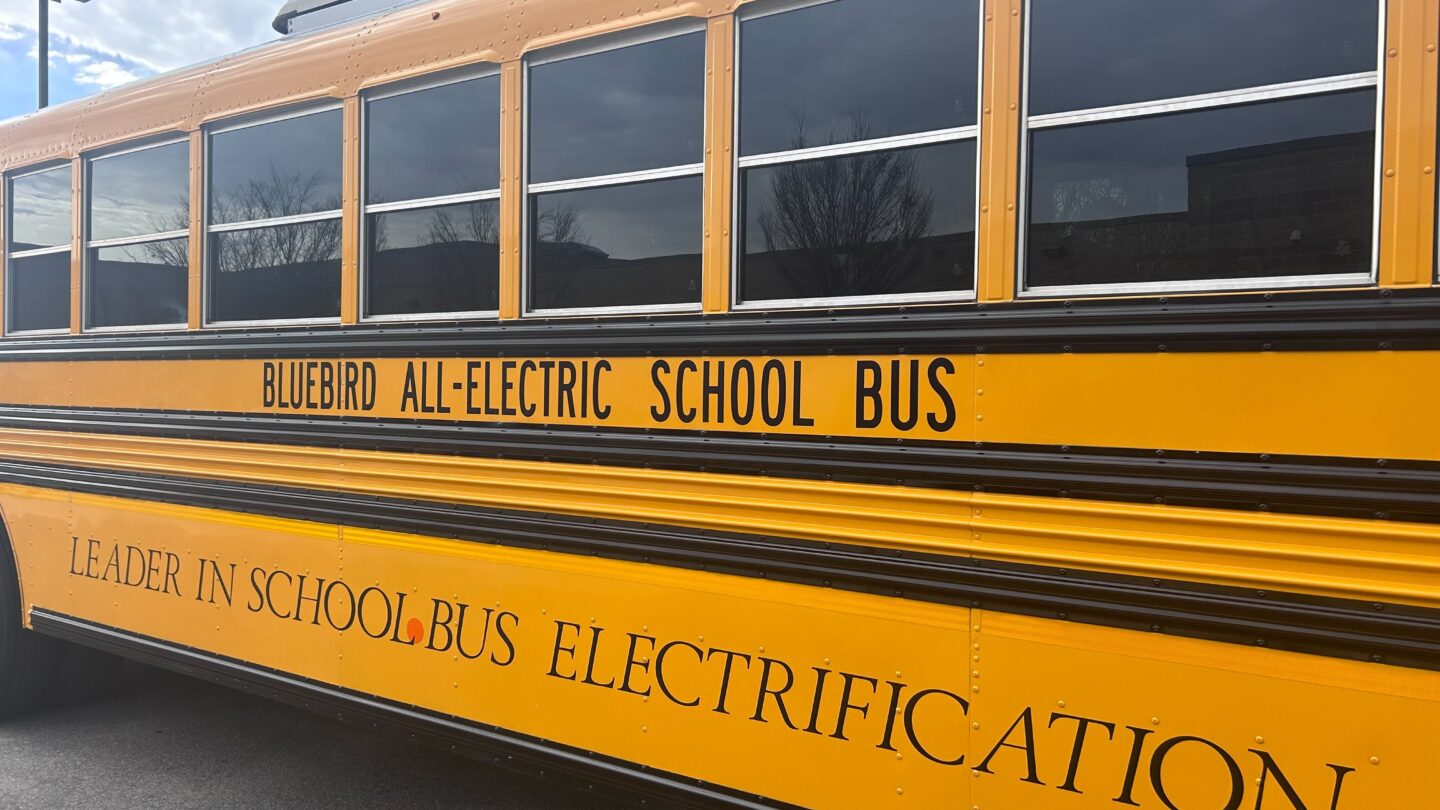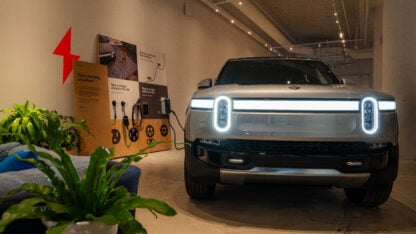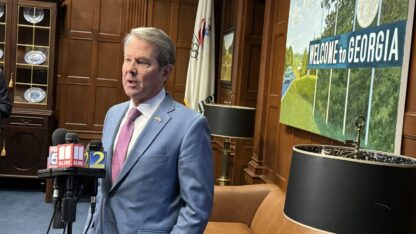On a brisk January morning, a yellow school bus pulls up to Stone Mountain Middle School in Dekalb County.
As the doors open, Brad Beauchamp, the alternative fuels manager for Blue Bird, one of the country’s largest producers of non-diesel school buses, motions a group of students and adults to get onboard.
“Welcome to the Blue Bird,” he shouts enthusiastically. “All American electric bus.”
As the travelers arrive on the large, yellow electric vehicle (EV), they are provided with a list of facts about the electric buses, such as the one that they are riding on.
“There are over 480,000 school buses that transport 25 million students a day,” said Beauchamp. “If half of them were electric, they’d be able to power half the homes in Vermont for three days.”
But the percentage of electric school buses on America’s roads is still very small. Only a little less than 3%.
As this electric bus quietly hums around the neighborhood, kids ask questions like, “ How much does it cost?”
According to recent estimates, most go for around $400 thousand. However, the federal government is stepping in to help with the steep price tag.
With help from the EPA’s Clean School Bus Grant program, over 27,000 electric buses are expected to soon be on the road across thirty-seven states.
The Dekalb County School District in particular is set to receive $20 million to help buy the buses, one-third of Georgia’s $60 million funding.
“When we look at the billion plus dollars that we put out before and this billion we’re announcing today, we’re looking at just from this program, about five thousand electric school buses hitting the streets soon,” said EPA administrator Michael Regan at a recent press conference at the middle school.
Another aspect that makes the shift to electrical buses more desired is health. Experts say these vehicles will help improve air quality and reduce noise pollution for children and their families.
“As a parent myself of a ten-year-old, I can say with certainty that there’s no higher priority for me than ensuring that our children will live in a clean, healthy environment,” said Regan.
“Out of almost half a school million buses … So far, only 1,500 of them are electric,” added Blue Bird CEO Phil Horlock.”Now imagine every one of those buses were electric powered, zero emissions that will remove 5.3 million metric tons of carbon emissions from our environment for our clean air.”
It will still take a few years and higher funding to deliver on the priority of entirely replacing fueled buses with electric ones. Still, district officials for Dekalb hope to make the switch sooner rather than later. The first 50 electric buses for the county are expected to be released in the fall of 2025.
Meanwhile, Blue Bird is still expanding its operation to meet future EV bus needs.
“It’s probably about 25 electric buses across the state,” said Horlock. “Obviously, we’re gonna go 10 times that number with this new announcement. So it’s a great day for all of us.”









